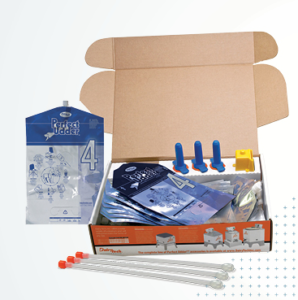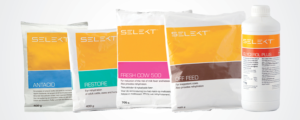Newsletter – June 2018
Thursday, June 14 2018 7:24 pm
To download newsletter click here
Pasteurisers heat treats colostrum to kill bacteria and major pathogens residing in colostrum such as Johne’s bacteria, Mycoplasma
bovis bacteria, salmonella species etc. The high bacterial content of a lot of colostrum being fed in New Zealand can impact on the
ability of a calf to absorb the critical immunoglobulins and nutrients required to give them the best start in life. Research suggests that calves fed heat treated colostrum have better transfer of immunity at 24 hours compared to calves fed untreated or raw colostrum.
The heat treatment process requires the colostrum to be heated to 60°C and kept at that
temperature for 60 minutes for pathogens to be destroyed. This can be done either in bulk
or in the perfect udder bags which can be used to collect, treat and store colostrum in
convenient 4L or 2L, sterile bags. Heat treatment of colostrum is a complex business and
the dairy tech pasteurisers employ tightly controlled temperature regulation to ensure
the protection of the colostrum proteins during the process. While fully automated, the
colostrum or milk is processed with a sophisticated set of controls that ensure proper
temperatures and times are strictly adhered to. Following completion of the cycle, a built-in
pre-cooling feature rapidly cools the colostrum to ensure there is no regrowth of bacteria.
These sophisticated units are built out of high quality material and are supported with a
12 month warranty and world-wide sales and service.
Selekt Glycerol Plus
We have a new addition to our Selekt range of nutritional products. Glycerol plus comes to you this autumn and fits nicely with rehydrating cows and supplying a readily available energy source. Comprising of Glycerol and propylene glycol it has two glucose precursors in each one litre bottle. Glycerol rapidly converts to glucose while propylene glycol takes a little longer giving both a rapid and a slower sustained boost in energy. Combining glycerol plus with a restore sachet in 20 litres of water is an excellent treatment for anorexic ketotic cows in the spring. With the two glycogenic precursors combined it ensures that less doses of potentially toxic propylene glycol are required.
Health and well-being of your herds So often we hear the clichéd statement about how the veterinary profession acts as the ambulance at the bottom of the cliff.
Many of us would rather be the fence at the top of the cliff instead but how is that possible with many treatments reactive to a certain scenario happening on farm. If the current Mycoplasma bovis alert has shown us anything it has shown us that the wellness of your herds is extremely important when facing any form of adverse events. Overseas reports show an anecdotal evidence in New Zealand suggest that herds under stress exhibit a greater array of detrimental symptoms to M. bovis than herds not under stress. How best to avoid stress in your herds you may ask? Clearly ensuring animals are fully fed goes a long way but ensuring they are free from disease will add huge benefits as well. Vaccines such as Hiprabovis 3 and Startvac mastitis vaccine help to relieve stress on herds by limiting herds exposure to disease. This allows the immune system to be fully charged to counter pathogens that may be present that are unable to be protected against by vaccination. The important message is to control what you can control and not leave things to chance. Of course, the other lesson we have hopefully learned is one of biosecurity. We need to be aware of who and what is coming onto our farms and where they come from. Many people run fairly-closed herds so the risk of disease coming in is from people or animals. Precautions need not be draconic but simple straightforward procedures need to be followed. The farming landscape may never be the same but with more thought of the overall wellness of your herds it may be even brighter than it was before.



